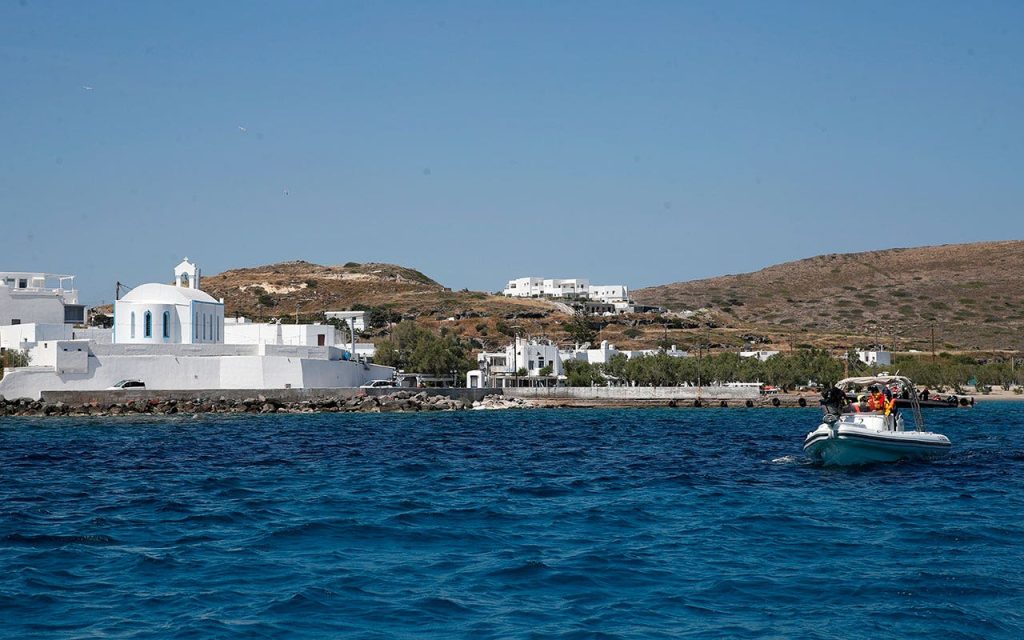Greece has announced plans to establish two large marine parks in the Ionian and Aegean Seas, covering over 30 percent of its waters, as part of an $830 million program to protect biodiversity and marine ecosystems. The expansion of marine protected areas by 80 percent aims to ban harmful fishing practices and utilize new monitoring technologies to enforce these commitments. Prime Minister Kyriakos Mitsotakis stated that the goal is to safeguard marine biodiversity and ecosystems in a bid to address the climate and ocean crisis by taking decisive action. The initiative, set to be officially announced at an international oceans conference in Athens, has received mixed reactions from environmental organizations, with some calling for stronger commitments to environmental protection.
Environmental organizations such as Greenpeace have criticized Greece’s initiative for not going far enough in terms of environmental protection. They have urged leaders attending the conference to take concrete steps to prevent the looting of the seas under the slogan “The sea is not for sale.” Greece has been under scrutiny for allowing deep-sea seismic exploration for energy and mineral resources in the Hellenic Trench, which is a vital habitat for marine mammals such as sperm whales. The trench is also home to various species already threatened by fishing, ship collisions, and plastic pollution. While Greece’s plan to establish marine parks is a step in the right direction, environmental groups are calling for more robust action to protect the world’s marine environment.
Turkey, Greece’s neighbor and regional rival, has responded with criticism to Greece’s marine park plans, accusing Athens of exploiting environmental issues to push its geopolitical agenda. Relations between the two countries have been strained for decades over territorial claims in the Aegean, leading to several instances of heightened tensions and near-war situations. Despite recent improvements in relations, Turkey has expressed annoyance at Greece’s plans for a marine park in the Aegean, accusing Athens of politicizing an environmental issue. Greece’s government has defended its initiative as a necessary step to protect marine biodiversity and ecosystems, emphasizing the need for efficient measures based on science, efficiency, and investment.
The two-day international meeting in Athens where the marine park plans are set to be announced aims to catalyze global action against the climate and ocean crises. Greece’s commitment to increase the size of its marine protected areas and ban harmful fishing practices reflects a broader effort to address environmental challenges on a global scale. The country’s long coastline and numerous islands make it a crucial player in protecting marine biodiversity in the Mediterranean. With mounting pressure from environmental organizations to adopt stronger measures for environmental protection, Greece’s plan to establish marine parks signals a step in the right direction, but further commitments and action plans will be necessary to prevent the degradation of the world’s marine environment.
The issue of marine protection also highlights the need for international cooperation and diplomacy in addressing environmental challenges. Turkey’s response to Greece’s marine park plans underscores the complex geopolitical dynamics at play in environmental initiatives. As both countries navigate territorial disputes and historical tensions, the issue of marine protection has become another point of contention. Finding a balance between environmental conservation and geopolitical interests will be key to ensuring the success of Greece’s marine park initiative and advancing global efforts to protect marine biodiversity and ecosystems. With ongoing debates over the extent of protection in areas like the Hellenic Trench, the need for collaboration, dialogue, and shared commitments across borders is critical in safeguarding the world’s oceans and marine life for future generations.


